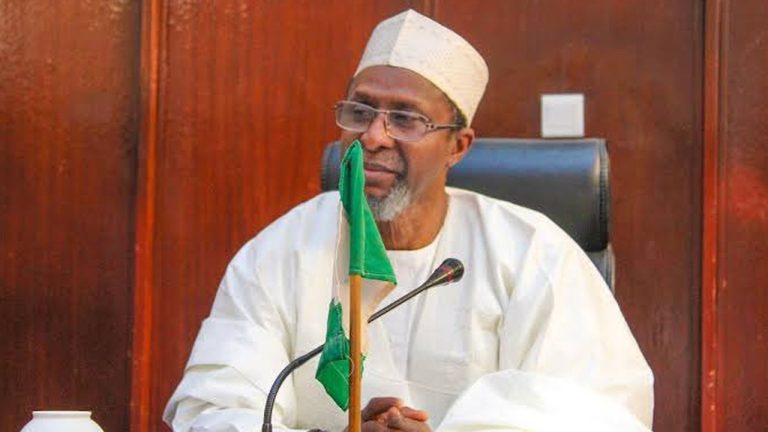The Minister of Environment, Malam Balarabe Lawal says henceforth all building plans in the country must have a toilet.
The minister spoke at the commemoration of the 2023 World Toilet Day in Abuja with the theme “Accelerating Change” on Tuesday in Abuja.
Lawal regretted that many people in Nigeria still used the bush and water bodies as their regular means of excreta disposal.
“From now on, we should talk to all building institutions that approve building plans to see that all building plans that come to them must have a toilet.
“We are going to propose to all state governments that all building plans should have a toilet.
“We are also going to propose that all malls and buildings that have a shop must have a toilet as a matter of necessity.
“This scenario of leaving so many people behind without safe toilets puts in jeopardy the entire 2030 Agenda.
“The poorest people, particularly women and girls, are paying the highest price in terms of poor health, missed education, loss of productivity, and general insecurity.’’
According to him, many institutions do not have sanitary facilities, and where they do, they are either not functioning or misused.
The minister said that most urban areas did not have sewerage systems or safe collection of sewage, which made disposal a huge challenge.
He said that many of the water bodies, including rivers and streams, became repositories for sewage and wastewater.
He said there was a need for urgent, massive investment and innovation along the entire sanitation service chain, as investment in the sanitation sector was good for public health and the economy.
“Findings from the sanitary inspection of Federal Government unity schools in FCT revealed that some of the toilets in the hostels in some of the schools visited were locked because they were not in good condition.
“There is poor or inadequate water supply in some of the schools, which affects the use and access to toilets by the students, who obviously practice open defecation, as there is evidence of the presence of excreta in the surrounding environment.
“Defective septic tanks can serve as breeding places for pests and vectors of public health importance, such as mosquitoes, rats, and snakes, among others.’’
The minister called on the unity schools across the country that might have similar sanitation challenges to take note and improve their sanitation situation.
“However, during the sanitary inspection of the Federal Government schools in FCT, I am glad to inform you that Federal Government College Rubochi and Federal Government College Kwali emerged as the cleanest schools in FCT for the 2023 World Toilet Day commemoration,” he said.
On his part, the director overseeing the Office of the Permanent Secretary of the Federal Ministry of Environment, Mr. Charles Ikeah said that the world over, no fewer than 3.5 billion people still live without safe toilets.
He added that no fewer than 48 million Nigerians were still practicing open defecation.
“This global as well as national crisis poses a threat to nature and everyone’s health, particularly women, girls, and other vulnerable groups.
“One of the major consequences of poor excreta and sewage disposal is the high rate of diarrhea disease, which is the second cause of high morbidity and mortality rates among children under the age of five,’’ he said.
Ikeah assured that these could be prevented through adequate and accessible toilet facilities and safe excreta disposal.
In her remarks, a representative of the Ministry of Education, Mrs. Hassan Mailafia urged Nigerians to continue to maintain good sanitation practices.
“It is incumbent to note that we must ensure that no one is left out in the issue of proper sanitation,” she said.
More so, Head of Relations and External Relations at Harpic Manufacturing Co. Ltd., Mrs. Cassandra Uzougbo said that the firm had been providing hygiene solutions to Nigerians and assured of more commitment to sanitation in the country.
The World Toilet Day is marked every year on November 19, as declared by the UN General Assembly in 2013.


